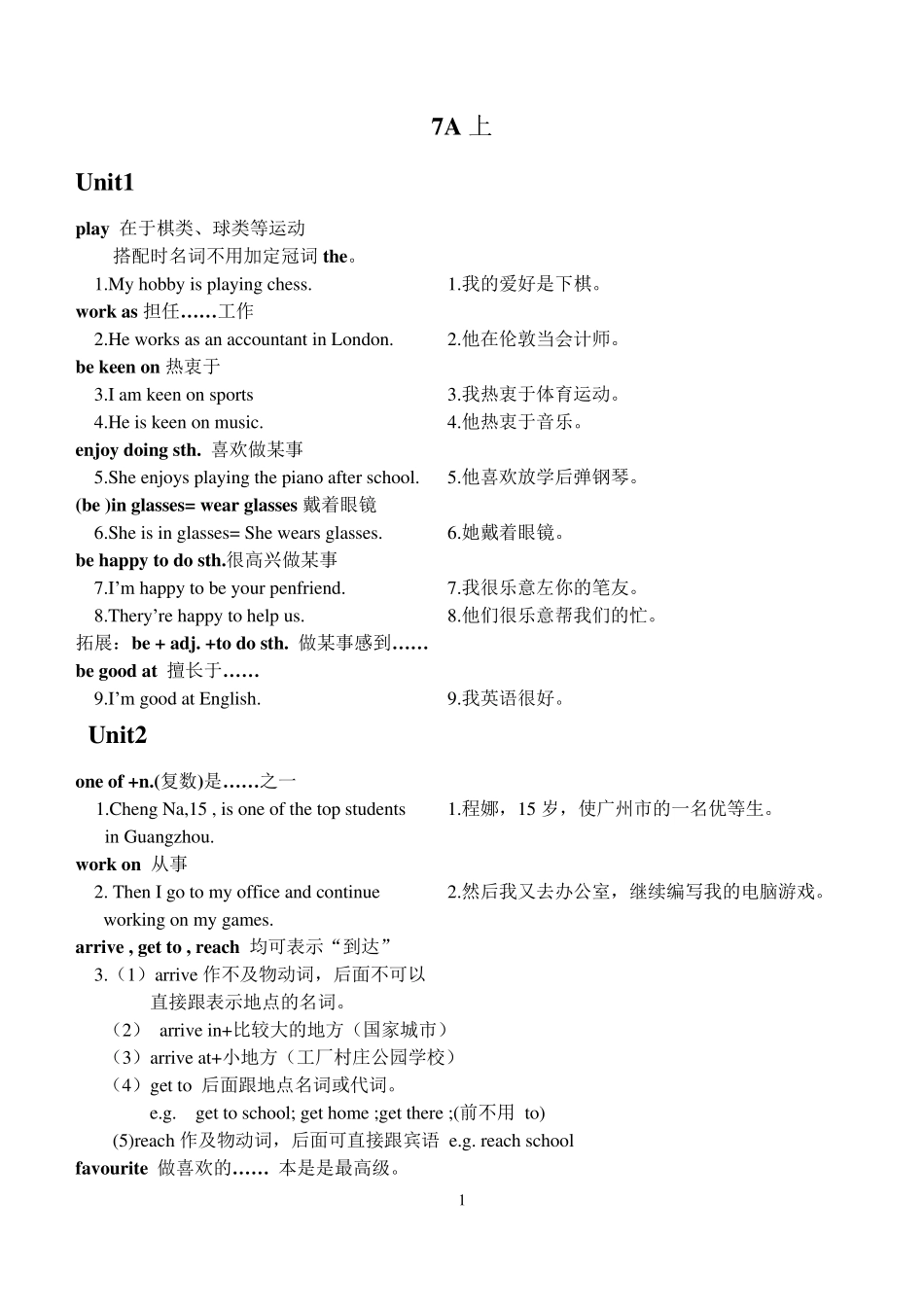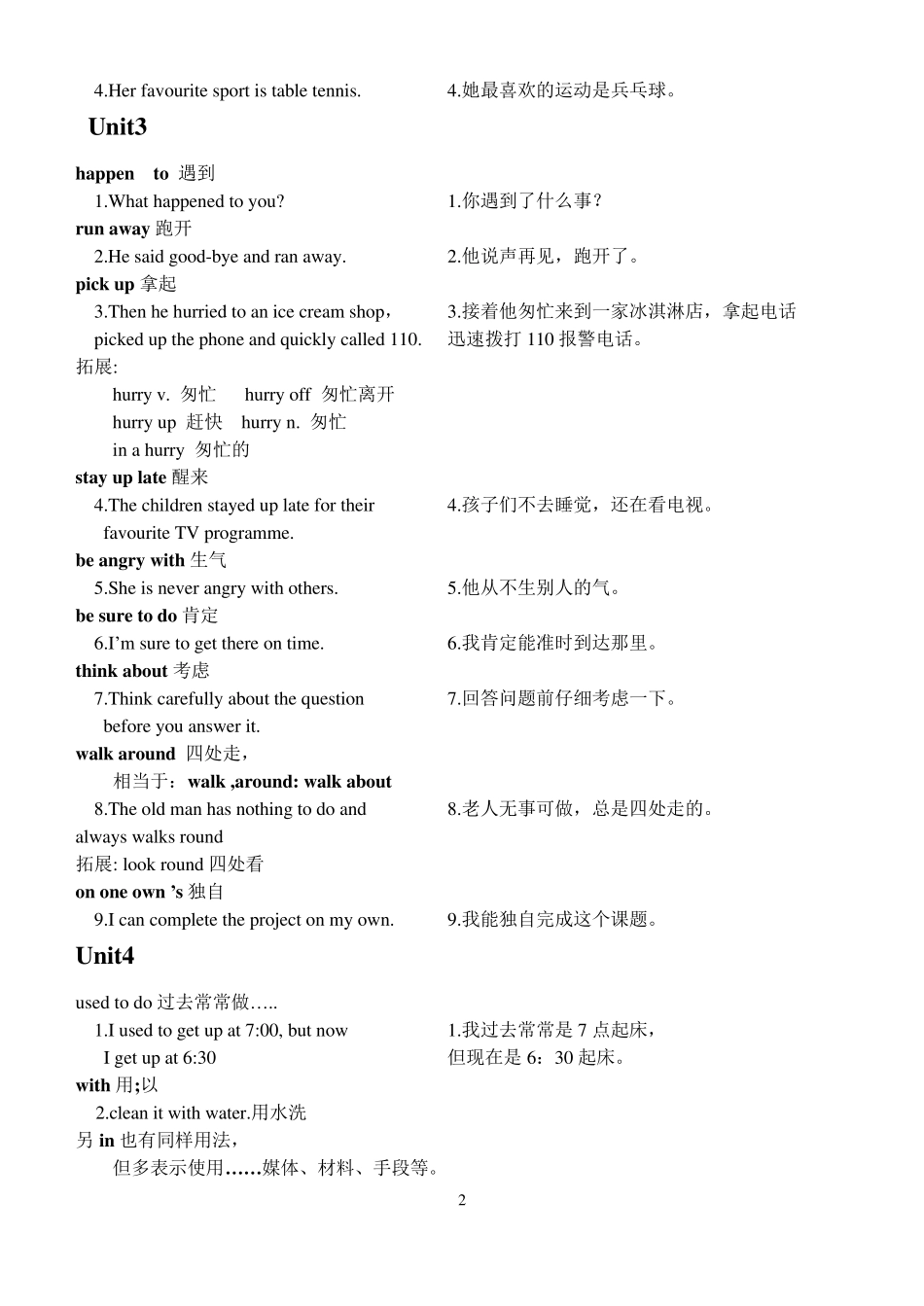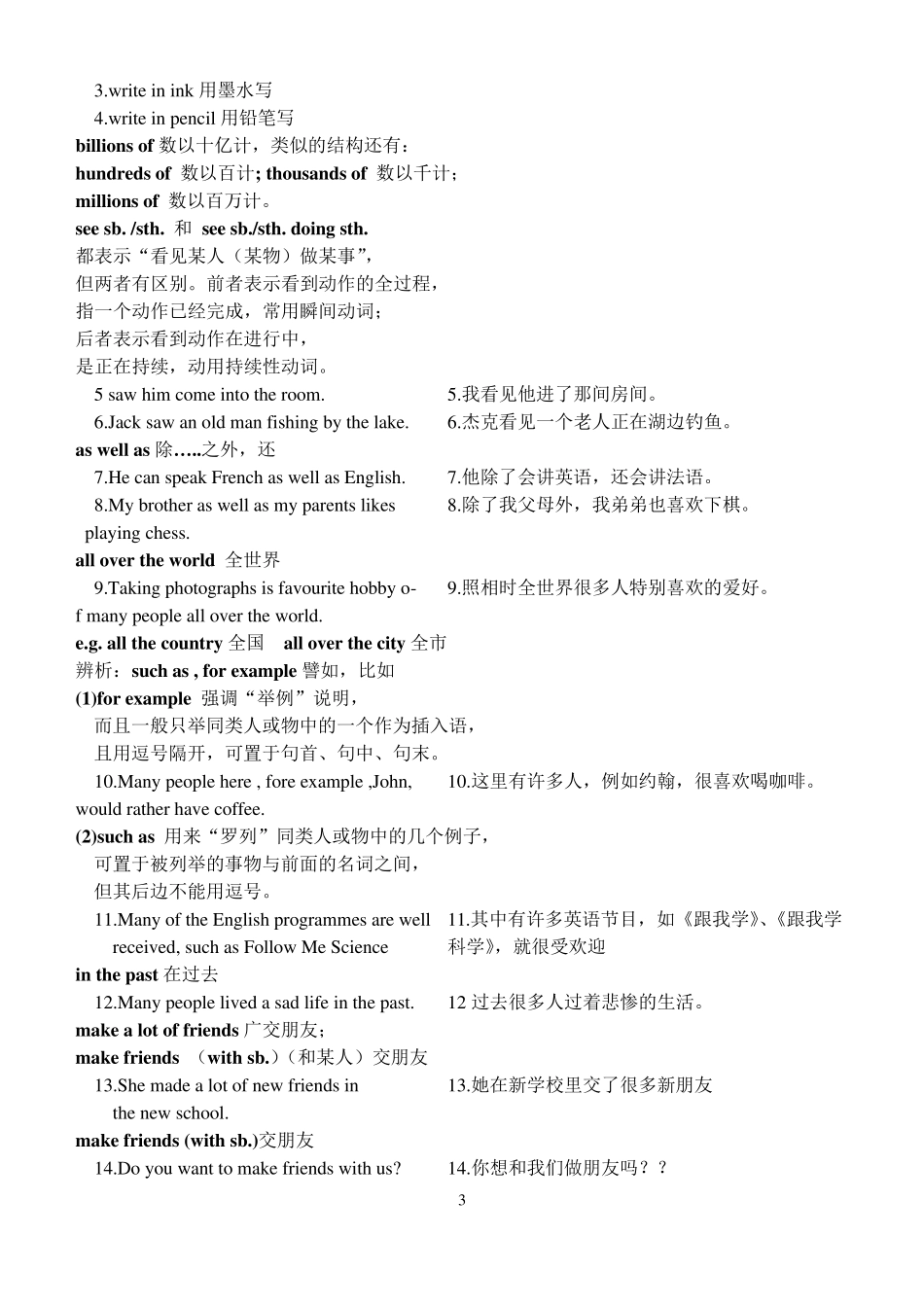1 7A 上 Unit1 play 在于棋类、球类等运动 搭配时名词不用加定冠词the。 1.My hobby is playing chess. 1.我的爱好是下棋。 work as 担任……工作 2.He works as an accountant in London. 2.他在伦敦当会计师。 be keen on 热衷于 3.I am keen on sports 3.我热衷于体育运动。 4.He is keen on music. 4.他热衷于音乐。 enjoy doing sth. 喜欢做某事 5.She enjoys playing the piano after school. 5.他喜欢放学后弹钢琴。 (be )in glasses= wear glasses 戴着眼镜 6.She is in glasses= She wears glasses. 6.她戴着眼镜。 be happy to do sth.很高兴做某事 7.I’m happy to be your penfriend. 7.我很乐意左你的笔友。 8.Thery’re happy to help us. 8.他们很乐意帮我们的忙。 拓展:be + adj. +to do sth. 做某事感到…… be good at 擅长于…… 9.I’m good at English. 9.我英语很好。 Unit2 one of +n.(复数)是……之一 1.Cheng Na,15 , is one of the top students 1.程娜,15 岁,使广州市的一名优等生。 in Guangzhou. work on 从事 2. Then I go to my office and continue 2.然后我又去办公室,继续编写我的电脑游戏。 working on my games. arrive , get to , reach 均可表示“到达” 3.(1)arrive 作不及物动词,后面不可以 直接跟表示地点的名词。 (2) arrive in+比较大的地方(国家城市) (3)arrive at+小地方(工厂村庄公园学校) (4)get to 后面跟地点名词或代词。 e.g. get to school; get home ;get there ;(前不用 to) (5)reach 作及物动词,后面可直接跟宾语 e.g. reach school favourite 做喜欢的…… 本是是最高级。 2 4.Her favourite sport is table tennis. 4.她最喜欢的运动是兵乓球。 Unit3 happen to 遇到 1.What happened to you? 1.你遇到了什么事? run away跑开 2.He said good-bye and ran away. 2.他说声再见,跑开了。 pick up 拿起 3.Then he hurried to an ice cream shop, 3.接着他匆忙来到一家冰淇淋店,拿起电话 picked up the phone and quickly called 110. 迅速拨打 110 报警电话。 拓展: hurry v. 匆忙 hurry off 匆忙离开 hurry up 赶快 hurr...


